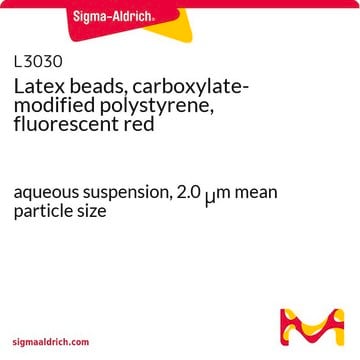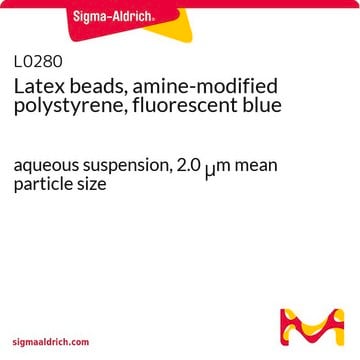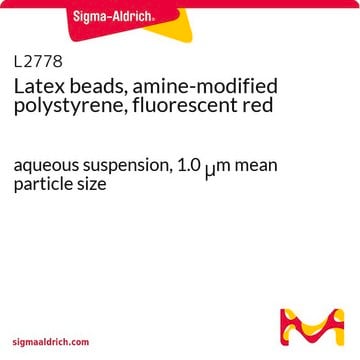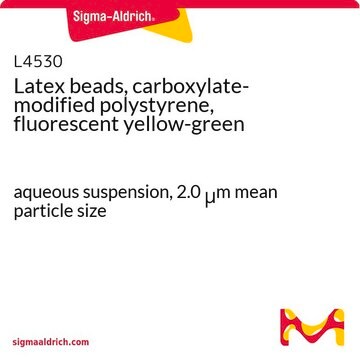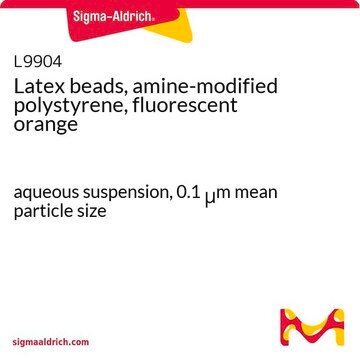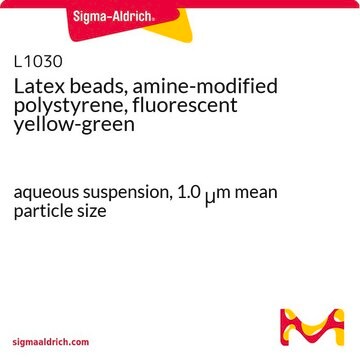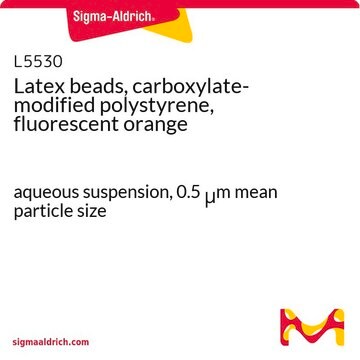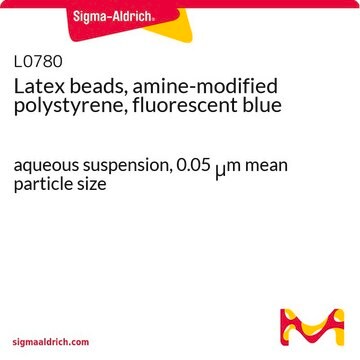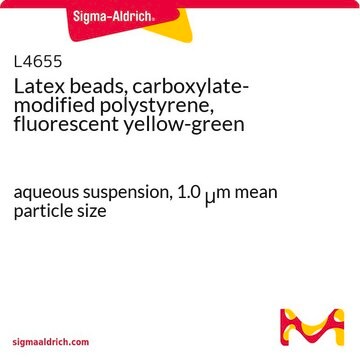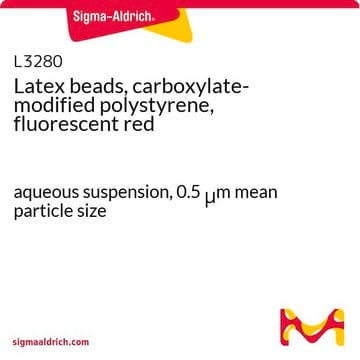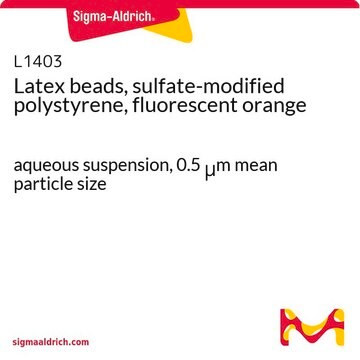L9529
Latex beads, amine-modified polystyrene, fluorescent orange
aqueous suspension, 2.0 μm mean particle size
Iniciar sesiónpara Ver la Fijación de precios por contrato y de la organización
About This Item
Productos recomendados
form
aqueous suspension
Quality Level
composition
Solids, 2.4-2.6%
mean particle size
2.0 μm
fluorescence
λex ~520 nm; λem ~540 nm
¿Está buscando productos similares? Visita Guía de comparación de productos
Application
Latex beads, amine-modified polystyrene, fluorescent orange has been used in functionalized microbeads for rapid antimicrobial susceptibility testing (AST) evaluation. It has also been used in microparticle functionalization for the detection of live bacteria.
Biochem/physiol Actions
Amine-modified polystyrene latex beads have been used to develop an electrochemical nitrite nanosensor as well as to validate a pharyngeal aspiration technique for exposing the mouse lung to respirable particles.
Storage Class
10 - Combustible liquids
wgk_germany
WGK 3
flash_point_f
Not applicable
flash_point_c
Not applicable
Certificados de análisis (COA)
Busque Certificados de análisis (COA) introduciendo el número de lote del producto. Los números de lote se encuentran en la etiqueta del producto después de las palabras «Lot» o «Batch»
¿Ya tiene este producto?
Encuentre la documentación para los productos que ha comprado recientemente en la Biblioteca de documentos.
Los clientes también vieron
J Geys et al.
Toxicology letters, 160(3), 218-226 (2005-09-03)
Recent studies indicate that inhaled ultrafine particles can pass into the circulation. To study this translocation in an in vitro model three types of pulmonary epithelial cells were examined. The integrity of the cell monolayer was verified by measuring the
Development of a self-driving bioassay based on diffusion for simple detection of microorganisms
Wang J C, et al.
Sensors and Actuators B, Chemical, 278, 140-146 (2019)
Ninad Mehendale et al.
Biomedical microdevices, 20(1), 6-6 (2017-12-01)
Pillar-based microfluidic sorting devices are preferred for isolation of rare cells due to their simple designs and passive operation. Dead-end pillar filters can efficiently capture large rare cells, such as, circulating tumor cells (CTCs), nucleated red blood cells (NRBCs), CD4
Jhih-Cheng Wang et al.
ACS sensors, 3(10), 2182-2190 (2018-09-18)
Rapid detection of bacteria and their susceptibility to specific antibiotics plays a vital role in microbial infection treatments. Antimicrobial susceptibility testing (AST) is a common measure to select effective drugs. However, the conventional practices, such as broth dilution, E-test, and
G V S Rao et al.
Journal of toxicology and environmental health. Part A, 66(15), 1441-1452 (2003-07-15)
Recent studies have demonstrated that the mouse lung can be exposed to soluble antigens by aspiration of these antigens from the pharynx. This simple technique avoids the trauma associated with intratracheal instillation. In this study, the pharyngeal aspiration technique was
Nuestro equipo de científicos tiene experiencia en todas las áreas de investigación: Ciencias de la vida, Ciencia de los materiales, Síntesis química, Cromatografía, Analítica y muchas otras.
Póngase en contacto con el Servicio técnico